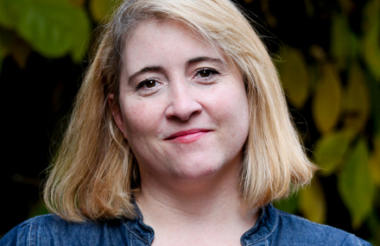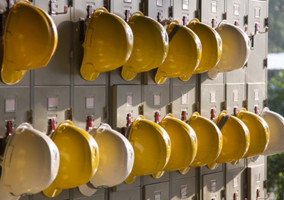Charities that are involved in delivering public service contracts are at risk of a Carillion-style collapse because the sector’s ecosystem is "riddled with subcontracting risk", the chief executive of Children England has said.
In an article for Civil Society News, Kathy Evans has warned that what happened to Carillion, the facilities management and construction services company that collapsed recently, could happen to charities involved in public service contracts.
The chief executive of the infrastructure body for the children’s sector wrote that there are several features of what brought down Carillion that must be recognised as “pressing problems in our own sector”, but she said three of the most obvious are underpricing, pensions deficit, and supply chain risk exposure.
‘We may not be direct descendants of Carillion, but we are its extended family’
She wrote: “As the slo-mo car crash unfolds in front of our eyes we should expect its shockwaves to reach the ‘public service markets’ in which charities large and small have been competing for over 30 years now. “
“There should be no comfort taken in the fact that Carillon did construction and maintenance contracting, and charities don’t. We may not be direct descendants of Carillion, but we are its extended family”
On underpricing, Evans quoted the figure found by the Charity Finance Group’s benchmarking tracker tool that the 11 participating charities with annual income over £50m were making an average 11 per cent loss on their public sector contracts.
She wrote: “An average 11 per cent loss represents a giant red flashing light on the dashboard of chronic unsustainability.”
Evans wrote that pensions in a sector were another issue. She said: “Pensions deficits are not a direct consequence of public service contracting, but their escalating bill is, as it was for Carillion, a titanic ‘underwater’ iceberg that could scupper many charities whose quality of services and contract income ratios might otherwise appear, on the surface, perfectly sustainable.”
Sector’s ecosystem ‘riddled with subcontracting risk’
On supply chains, Evans warned charities involved in supply chains that they “should urgently look at the unfolding experience of Carillon subcontractors left high and dry by prolonged invoice non-payment and their ‘lack of insurance cover’ for this eventuality”.
She said: “We must acknowledge that our sector’s ecosystem is riddled with subcontracting risk, and the threat to survival is greatest for the smallest ‘suppliers’ with the greatest reliance on subcontracts as a single source of income - a situation ‘sold’ to them as their best route to sustainability.”
Evans warned that Carillon is “no ‘bad apple’ company that can be removed from an otherwise healthy barrel”.
She told charities: “We must stop playing the contracting game as it has been framed; stop competing against each other for scraps of underpriced work that can’t be sustained for our own organisations or for the rising demand from the people we serve. We must assert our collective voice and power to change the game altogether. Before it really is too late.”
This article has been amended to clarify that in CFG's financial benchmarking tool, an 11 per cent loss was made on average by 11 charities with income above £50m, not by the top 100 public service delivery charities.
|
Related articles












